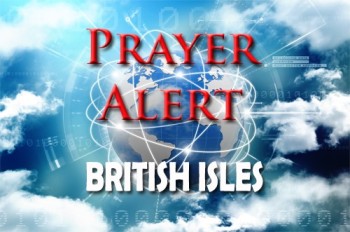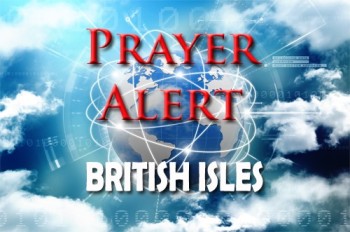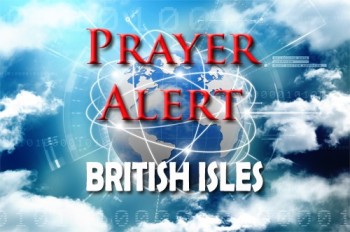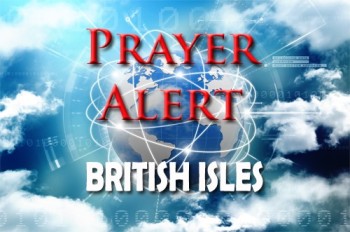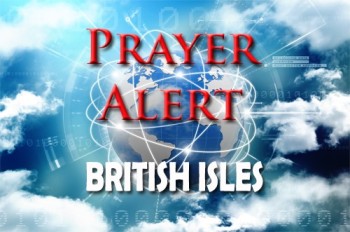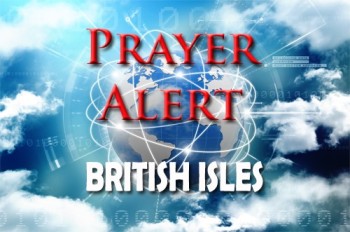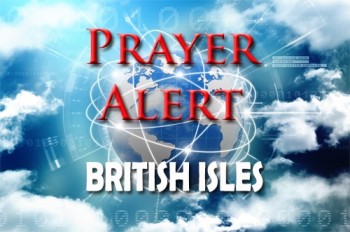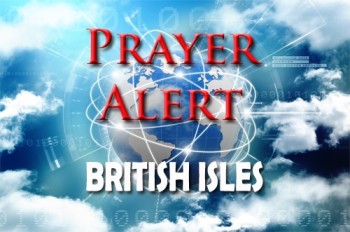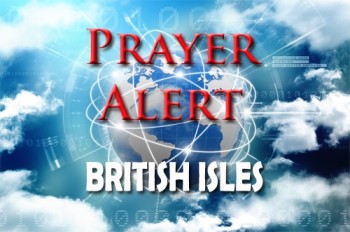Displaying items by tag: Keir Starmer
Trump meets Starmer as £150bn US investment is announced
Donald Trump has met Keir Starmer at Chequers during his second state visit to the UK, following the announcement of £150 billion in American investment. The funds, pledged by major firms including Blackstone, Prologis, and Palantir, are expected to create around 7,600 jobs across Britain. The leaders are set to sign a 'technology prosperity deal' to boost UK artificial intelligence development, while also discussing trade, investment, and foreign policy. The talks come after a Windsor Castle state banquet, where both Trump and the King hailed the 'special relationship' between the UK and US. While Starmer hopes to spotlight renewed transatlantic ties and economic opportunity, both governments face awkward questions, including ongoing controversies linked to Jeffrey Epstein and differing positions on Israel. Chancellor Rachel Reeves will also host a Downing Street reception for US and UK business leaders to showcase deeper cooperation. The visit marks a significant moment for strengthening economic and diplomatic bonds between the two nations.
No food trade deal until we get youth mobility, EU tells Starmer
Brussels has warned that no deal on easing border checks for UK food imports will be reached unless Britain agrees to expand youth mobility schemes. The proposed sanitary and phytosanitary (SPS) agreement - central to Labour’s plan to reduce food costs by 2027 - would align rules on plants, animals, and food products, cutting supermarket prices and border delays. But EU negotiators insist progress depends on allowing more young Europeans aged 18 to 30 to live and work in the UK. Cabinet office minister Nick Thomas-Symonds pressed for urgency during talks in Brussels, stressing the need for relief as food inflation has risen for five consecutive months, with key staples up 5.1% annually. European diplomats, however, argue the SPS deal is more important for Britain than the EU. Meanwhile, UK firms face possible exclusion from bidding on EU defence projects worth €150 billion unless terms are finalised soon, with France resisting UK involvement. The Government faces mounting pressure as household food costs continue to climb.
Two candidates left for Labour deputy leadership
The Labour Party’s deputy leadership contest is narrowing to a likely two-horse race between Bridget Phillipson and Lucy Powell. Education secretary Phillipson became the first candidate to secure the required 80 nominations, with 116 backers including three cabinet ministers. She has emphasised immigration and border security as key concerns for voters, particularly in constituencies vulnerable to Reform UK advances. She highlighted her record of defeating populist opponents and promised to 'give hope' by tackling small boat crossings and improving public services. Powell, with 77 nominations, has drawn support from left-leaning MPs, presenting herself as more available for campaigning than a serving minister. Other contenders failed to gain sufficient momentum. While critics fear Phillipson may be seen as a Downing Street-backed 'coronation' candidate, her supporters argue she represents unity and strength. Meanwhile, Keir Starmer faces further scrutiny over his political judgment after he sacked Lord Mandelson as British ambassador to the USA, following the publication of email messages to Jeffrey Epstein. See
Rayner admits underpaying tax on Hove flat, but PM backs her
Deputy prime minister Angela Rayner has admitted underpaying stamp duty on her £800,000 flat in Hove, blaming reliance on flawed legal advice. The property purchase in May was part-funded by selling her stake in a Greater Manchester family home, which had been placed in trust to support her disabled son. Fresh advice later revealed that complexities in the trust meant she should have paid the higher rate reserved for second homes. Rayner has now alerted HMRC, pledged to pay the outstanding tax, and referred herself to the prime minister’s standards adviser for investigation. Sir Keir Starmer defended his deputy, praising her transparency and family priorities, while critics - led by Conservative leader Kemi Badenoch - argued her position was untenable. The case presents political difficulties for Labour, as Rayner previously criticised Conservative ministers over integrity issues. While some voiced sympathy for her circumstances, many continue to press for her removal. Downing Street has confirmed that an independent inquiry will now examine the matter.
Migrant boat crossings: France and UK aiming to curb the flow
Emmanuel Macron and Keir Starmer are engaged in critical talks aimed at curbing illegal Channel crossings in small boats. During Macron’s historic state visit to the UK, the first by a French president since 2008, the two leaders are negotiating enhanced border enforcement, including a ‘one in, one out’ migrant returns deal. The plan would allow the UK to return asylum seekers to France in exchange for accepting migrants with family ties in Britain. Macron stressed the importance of EU-level cooperation and reaffirmed the shared responsibility to combat irregular migration with humanity and fairness. Talks also include expanding French police powers to stop boats in shallow waters - a shift already showing signs of implementation. Despite optimism, challenges remain, including opposition from some EU countries. Small boat arrivals in the UK reached a record high in the first half of 2025, which underscores the urgency of finding ways of curbing the flow. Both nations hope for tangible progress in their joint response to people-smuggling networks.
Borrowing costs jump and pound falls on Chancellor's tears
Financial markets reacted sharply this week after Rachel Reeves appeared tearful during Prime Minister’s Questions, after the Government’s sudden U-turn on welfare reforms. Sterling fell by 1% against the dollar, while UK borrowing costs surged in one of the largest single-day moves since the market turmoil following Liz Truss’s 2022 mini-budget. The welfare reversal has left an almost £5 billion gap in Reeves’s fiscal plans, prompting investor concerns about how the Government will balance the books. While Downing Street insisted Reeves retains Starmer’s full support, analysts say the episode highlights market anxiety over potential leadership instability and future fiscal policy. Speculation mounted about possible tax rises in the autumn, though ministers reiterated pledges not to increase income tax, VAT, or National Insurance. Despite the turbulence, experts noted that markets are not as fragile as during the 2022 crisis.
Starmer’s NHS plan promises more GPs and local health hubs
Keir Starmer has unveiled an ambitious ten-year plan to transform the NHS by shifting healthcare from hospitals to local communities. Central to the proposal are 200 new 'neighbourhood health centres', offering scans, outpatient services, mental health support, and more - all aimed at reducing hospital demand. Starmer declared the NHS must 'reform or die’, pledging accessible, community-based care under one roof. Health secretary Wes Streeting promised thousands more GPs, reversing current trends favouring hospital consultants, and aims to slash waiting lists while prioritising British doctors for NHS jobs. The plan also includes an enhanced NHS app, AI safety alerts, and a focus on helping patients return to work. However, experts express caution, noting that past governments have announced similar visions without delivering meaningful change. Questions remain over funding, but Starmer insists the plan will 'fundamentally rewire' healthcare and prioritise patient-centred care, especially in deprived areas.
More pensioners to get winter fuel payments this year
Rachel Reeves has announced that more pensioners will qualify for winter fuel payments this year, following the backlash over Labour’s 2024 decision to cut the benefit for most retirees. While she confirmed the means-test threshold will rise, she did not specify by how much, and at Prime Minister’s Questions, Keir Starmer also failed to clarify how many of the ten million affected pensioners will regain eligibility. Labour’s original decision to means-test the payment reduced eligibility from 11.4 million to just 1.5 million, limiting it to pensioners receiving benefits like Pension Credit. The move, intended to save £1.5 billion annually, was part of an effort to address what Labour calls a £22 billion fiscal gap left by the previous government. Critics, including Kemi Badenoch, accused Labour of lacking preparation and transparency. Reeves insisted the government remains committed to easing winter costs for vulnerable seniors but acknowledged that specifics are still being finalised.
UK-US deal or eased tariffs ‘won’t be enough’, Starmer warns
Keir Starmer has cautioned that even if the UK secures a US trade deal or lower tariffs, it will not be enough to safeguard Britain’s economic future. In response to Donald Trump’s imposition of a 10% import tax on British goods, Starmer urged the UK to adapt to a changing global landscape by strengthening cooperation with Europe and diversifying trade partnerships. Trump later announced a 90-day pause on tariffs for most countries, though uncertainty remains. Global markets reacted with volatility, and the Bank of England warned of rising global financial risks. Despite the turmoil, Starmer reaffirmed the government's fiscal discipline. Rachel Reeves is also working to establish trade agreements, including a recent £400 million deal with India, and has planned high-level meetings in Washington and Brussels. The Government aims to boost UK growth by fostering new trade alliances while safeguarding vital interests like the NHS and digital taxation.
24,000 people who have 'no right to be here' have been returned under Labour
At the Government’s border security summit in London, Keir Starmer reported that 24,000 individuals without legal right to remain in the UK have been returned since Labour took power - the highest return rate in eight years. The summit gathered representatives from over 40 countries to address illegal migration and people smuggling, including tech platforms accused of enabling trafficking via social media. Home secretary Yvette Cooper highlighted the cruel tactics of smuggler gangs, including hugely overcrowded boats, exploiting vulnerable people, and using drones to evade detection. Ministers acknowledged disappointment in the rising small boat crossings and pledged £33 million in new funding to target organised criminal networks globally. Starmer emphasised the need for international collaboration, calling people smuggling a 'global security threat’.
